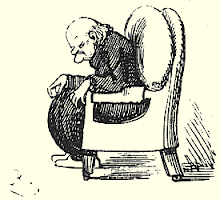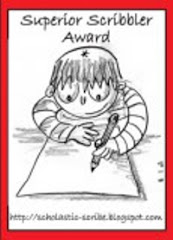When "Rushmore" came out, I realized two things:
1.) I will never be as simultaneously cool and awkward as Jason Schwartzmann.
and
2.) I love movies about awkward, unlikely friendships.
In case it's been too long since your last finely-aged Wes Anderson fix, I will take great pleasure in reminding you that, to the jangly soundtrack of the British pop invasion, bespectacled, precocious, and sometimes homicidal Rushmore Academy student Max Fisher becomes close friends with local business magnate Herman Blume, who is approximately four decades Max's senior, and wears monochromatic shirt-and-tie combinations.
In one of several touching scenes, after a falling out, Max and Herman meet outside of Max's father's barber shop. Max is wearing a green velour suit and, in honor of his friend, sports a gold shirt with a identically-hued bowtie. Max pulls a velvet-covered box from his pocket and opens it to reveal two lapel pins, both adorned with the Rushmore Academy bee mascot. "I thought you could wear one and I could wear the other," Max says, in that charmingly awkward way of his. One says "Punctuality" and the other says "Perfect Attendance," and Max offers one to Herman, also a Rushmore alum. Herman is obviously touched, and takes a careful moment to consider his choice.
"I'll take Punctuality."
And, through the rest of the film, Max wears "Perfect Attendance" and Herman wears "Punctuality," with pride.
There are a lot of reasons why I love "Rushmore." We don't need to go into all of them here, but I think the main reason why I love "Rushmore" is because it's a film that celebrates a phenomenon that I find irresistable: the bond between two inconceivably-matched men. Incongruous friendships-- intensely loyal, often tumultuous, engaging, interesting, maybe 3% homoerotically-charged, but mostly goofy, tender, powerful, gentle and real.
Although I'm writing this post at 8:07pm, EST on Sunday evening, I feel pretty confident in betting that one of those films is going to win the Academy Award.
While ardent linguistic schdorks like my wife may have been super-jazzed about the speech pathology implications and particulars of the film, it's tender-hearted schleps like me who were moved by the unlikely friendship between an English monarch and an Australian speech specialist and occasional amateur thespian. They laugh together, they fight like bears, they curse (bugger bugger bugger fuck!) and they find a way to continue being friends for the rest of their lives, in spite of the fact that, really, those two had no business cavorting about behind the radio microphones of the times.
One of my other favorite films stars Stanley Tucci and Oliver Platt; it's called "The Impostors." Tucci plays Arthur and Platt plays Maurice, and they are two struggling stage actors who live together in impoverished circumstances. Together, they wind up as stowaways aboard a ship-- with hilarious consequences. Maurice calls Arthur "Arthie." They hug. They bicker. They sleep next to each other in little rickety twin beds. They fight crime together. And they practice making dramatic faces at each other. They share slices of bread and cups of tea and, when Maurice is ready to serve the meager feast, he makes sure, after thinking about it for a moment, to give his friend the bigger slice.
After a fight, Maurice pats Arthur's knee, to say, "I'm sorry" with no words. Arthur takes a sip of tea, nods his head silently, and pats Maurice's knee, giving it an extra little rub to say, "I know."
And I thought to myself and then out loud to Mrs. Apron tonight, where are these movies celebrating uncommon, kind of dorky, yet genuine and sincere and heartfelt female friendships?
"I don't get it-- why can't there be movies like that featuring to unlikely women friends? Or is every movie about female friendship, like, 'Sex and the City' or some horesecock like that?"
"Yeah," my wife said, "every movie about female friendship is, basically, that. Because women aren't allowed to be meaningful or awkward. We have to be hot and go shoe-shopping. I remember hearing an interview on NPR about a woman who kept getting cast as the stupid side-kick bitch in movies and she was like, 'No, this is a stupid device, and I'm not doing it anymore.' It sucks."
And it does suck. It goes hand-in-hand with the erroneous notion that women can't be funny. Women can have unlikely friendships in movies, and they don't have to be lesbians, or one hot chick and her awkward friendlette who is used for explication and emotional baggage unloading.
I don't understand why this can't happen. Would some intelligent feminist please explain this to me? I have to go not watch the Oscars.





